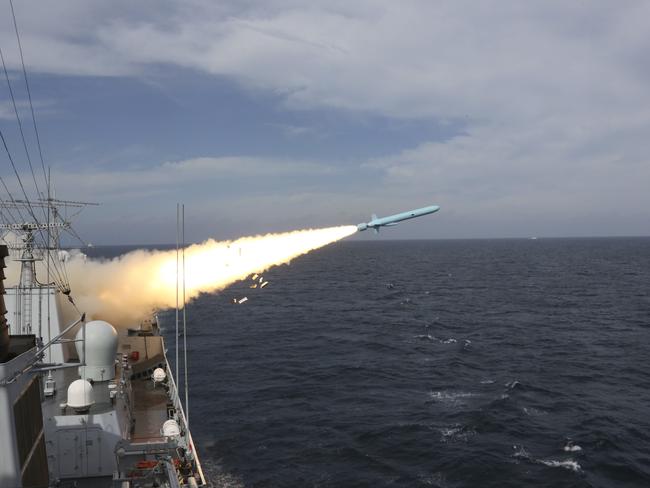
This article is more than
9 year oldThat is the frightening warning issued by research organisation, Rand Corporation, which highlights how the US and China remain at loggerheads over several regional disputes with large military forces operating closely together.
In its new report War With China, Thinking Through the Unthinkable, Rand warn any conflict would ultimately be intense, destructive and protracted.
“If an incident occurred or a crisis overheated, both have an incentive to strike enemy forces before being struck by them,” the report warns.
“And if hostilities erupted, both have ample forces, technology, industrial might, and personnel to fight across vast expanses of land, sea, air, space and cyberspace.”

The report also warns while the US has the military might to win any such conflict now, that may not be the case within a decade as the Asian powerhouse catches up.
By 2025, Rand predicts China will have built up its ability to saturate enemy naval forces with missiles and a US victory at this stage would be more uncertain.
The US remains the biggest spender on military across the globe, spending four times as much as rival China.
Figures released by Global Firepower (GFP) confirms spending in 2015 was highest for the US ($581bn) followed by China ($155bn).
The Rand report, which specifies conflict should be avoided at all costs, said there would be a massive political and economic costs associated with such a war.

While acknowledging such a war occurring remains highly unlikely, Rand said it was vital policy looked at how to avoid “economic and political damage” caused through potential conflict.
“Yet the consequences of war could go far beyond military success and failure: the world economy could be rocked, and international order, such as it is, could be shattered,” the report reads.

If a war was to occur it would start and remain in East Asia and would be waged mainly by ships, beneath the sea in space and in cyber space.
It added nuclear weaponry would be unlikely to be used with neither side willing to run the risk of using such devastating weaponry.
Cyber security expert Greg Austin said China and the US agree war would be an unlikely option and both would seek to avoid it all costs.
Prof Austin, a researcher at UNSW Canberra, said based on his work over the past decade he didn’t believe China would be able to match the US in terms of military power.
“China would lose now and in 10 years’ time,” he said.
Prof Austin said a war between the US and China would be unthinkable and the latter would suffer massively.

“I have no reason to believe China can significantly reverse the advantage the US has especially with allies, Japan, South Korea and Taiwan,” he said.
Prof Austin said even China admitted its technology remained weak.
Just two months ago, Prof Austin said the bigger concern and more realistic threat facing the world was China’s cyber war capabilities, which by 2030 had the potential to be more dangerous than anything else.
He warned Beijing’s cyber war capabilities could change the strategic balance in Asia, eclipsing the potential danger of rising tensions in the South China Sea.
He also predicted new technologies will “redefine both war and politics across East Asia” and the next major flashpoint where strategic interests would collide would be in cyber space.
Dr Euan Graham, International Security Program director at the Lowy Institute told news.com.au that while such a war was unlikely it was vital worst case scenarios, such as that outlined by Rand, were considered.
Describing a US/China war as “high impact, low probability” Dr Graham said we have to think about how to avoid war, however small the risk was of it occurring.
He said countries that had nuclear weapons, which both China and the US do, usually took all steps to avoid using them.
“But just because they have them doesn’t mean we should assume war won’t happen,” he said.
Dr Graham said he believed the nuclear issue would be problematic especially if a war took place on sea as opposed to land.